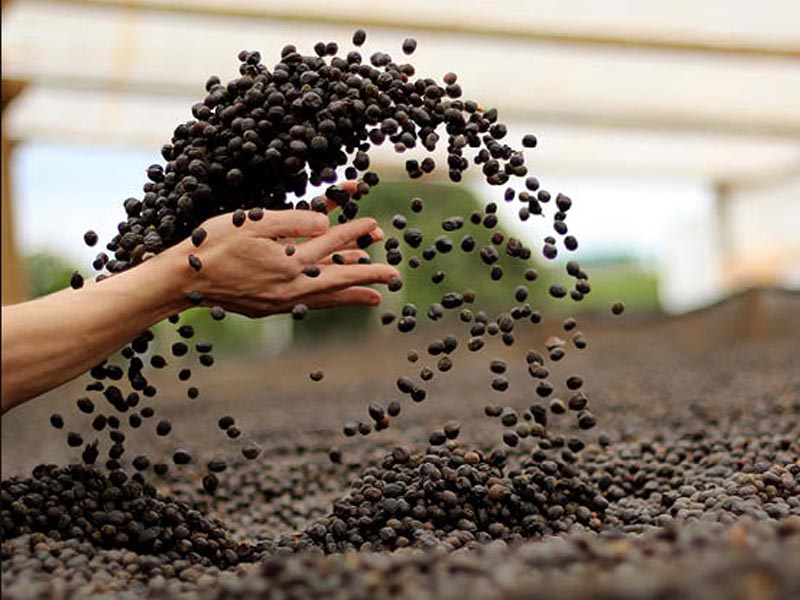Sustainable Coffee is an umbrella term for the coffee which is grown and marketed for sustainability and it encompasses specific types of coffees, certified as- fair trade, organic, Utz-certified etc. These certifications not only encourage and communicate compliance with standards associated with various attributes but they seek to provide an “added value” in coffee by: i) Awarding a premium on the price, ii) Promoting environmental protection, iii) Providing certain superior benefits like- better brand name, market reputation etc. Apart from certified coffees, certain private corporates also practice sustainable coffee through their designated programmes whose primary aspect is providing a certain “guarantee” regarding sustainable production to the consumers.
Sustainable Coffee presently has a very low footprint in India. There are several reasons for this- given the origin of sustainability certification programs are relatively of recent origin, awareness through research or writing about using sustainable coffee has also been less till date. Indeed, it is time we question beyond just the luxury of having a coffee regularly, on how sustainable are they, really? Whether the big profit-making coffee chain, producers are even ensuring trickling down of profits to the actual coffee beans’ growing people or is the sustainability concern for coffee just on paper and not in reality.
The rationale for sustainable coffee through sustainability certification, eco-labels hold a much higher value vis-à-vis a traditional coffee where the latter only might make a business sense, short-term profit scenario for the producers but sustainable coffee:
-
- Communicates environmental stewardship associated with coffee and its production process,
- Provides added value to the local coffee through price premiums to coffee farmers, producers,
- Promotes environmental protection.
Coffee sector not only has a direct impact on livelihoods of thousands of coffee farmers, coffee producers but also on climate change, global agriculture, trade, human and environmental well-being. From all the three- economic, environmental, and social perspective, it becomes imperative to preach coffee sustainably in India.
Globally, initiatives like Global Coffee Platform launched in 2016, and Corporate Sustainability Bonds issued by Starbucks Coffee in May 2016 are active. In India, initiatives in this direction has been by – Costa coffee committed with Rain Forest Alliance, Cafe coffee day-UTZ certified but with limited disclosure, Starbucks C.A.F.E. practises, Nespresso use of AAA sustainable quality and Fairtrade India, for working holistically on sustainable coffee was officially launched in 2012 while Nestle India started 4C certification in 2012.
Challenges pursuing sustainable coffee in India
Anything which demands going sustainable comes with costs. Factors like- priorities’ conflict for short-term profitability concerns versus environmental needs for MNCs; convincing the coffee farmers as they are often reluctant to change to environment -friendly coffee plantation techniques from their conventional practices –are some reasons why sustainable coffee is less present in India.
A Demand-Supply mismatch:
Study by Kumar et al. (2015) revealed that global sustainable coffee market is characterized by massive ‘over-supply’ and ironically, demand is less. Even if there is increased awareness for supplying sustainable coffees in India, the informed demand for sustainable coffee specifically is missing.
The push and the pull factor for sustainable coffee- both are missing:
As per Mr. Abhishek Jani, Executive Director, Fairtrade India, there are two aspects regarding India’s sustainable coffee journey- (a) Limited consumer engagement and understanding of what is growing at grass-root level; (b) Need for corporates to take responsibility for sustainability sourcing, i.e., making sustainability a part of their strategic aspect too. In India’s case, while there is lack of ‘pull’ from the consumers, the ‘push’ from the corporates in the form of branding etc. is also missing.
Way Forward
For sustainable coffee to move rapidly from a niche penetration to mainstream, rapid steps are required. Given there are multiple pathways to sustainability, certification represents only one of these pathways, the need for India is to go beyond certification. Steps like-investing in technical assistance, ensuring smallholder farmers’ finance, providing education and information about sustainable coffee across consumers, coffee farmers and corporates with growing programs and initiatives in this direction, ensuring standardized terminology etc. could work. After all, as Drew Wolff, Vice President, Starbucks rightly said, “A little bit of money goes a long way in this program”. Ultimately sustainability is for our own benefits and this realization needs to penetrate within us for driving sustainable coffee in coming times.
 |
By Shobhna Jha, (Ph.D. Economics Research Scholar, at IIT Delhi and Kathak Artist) |


